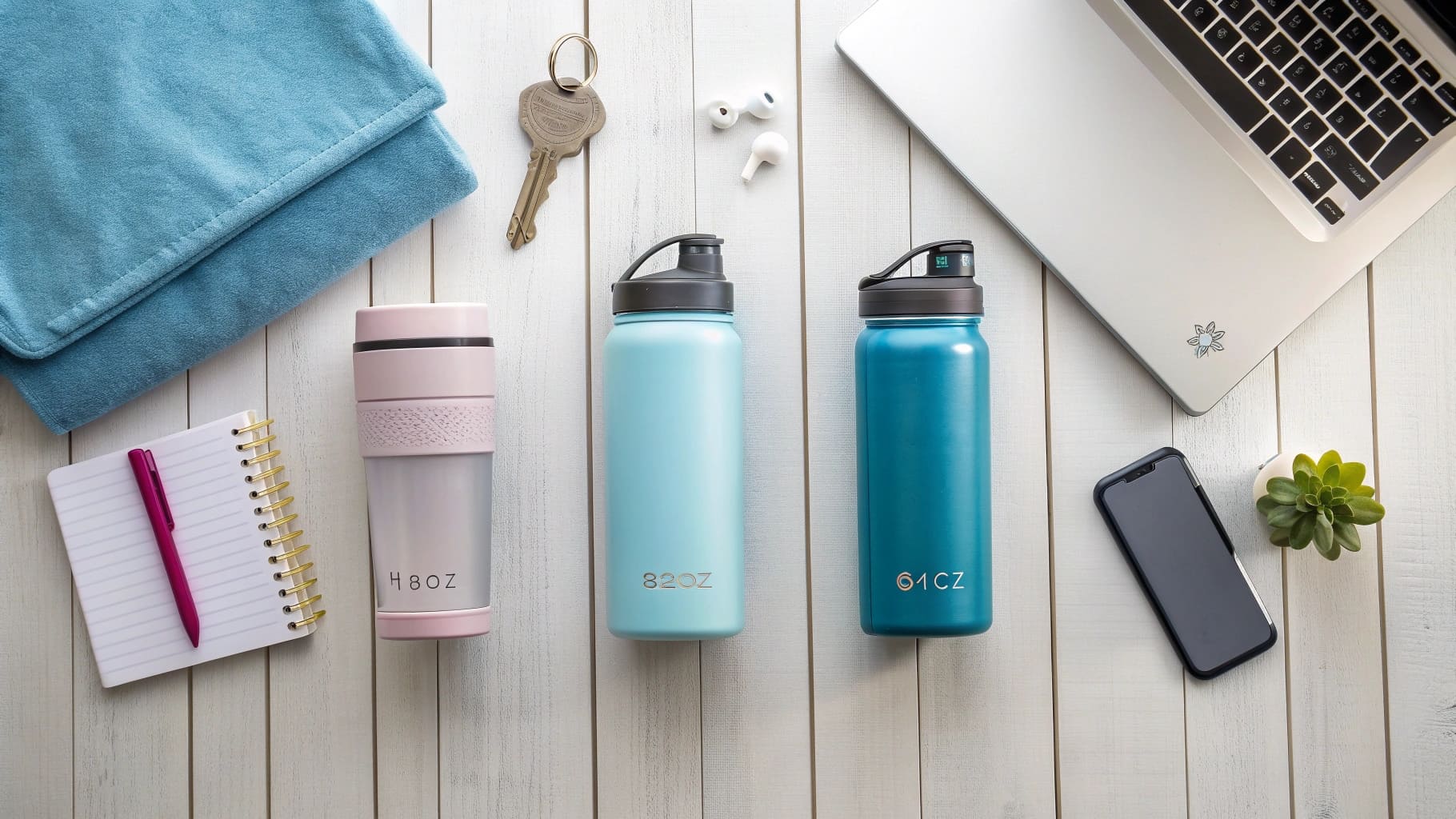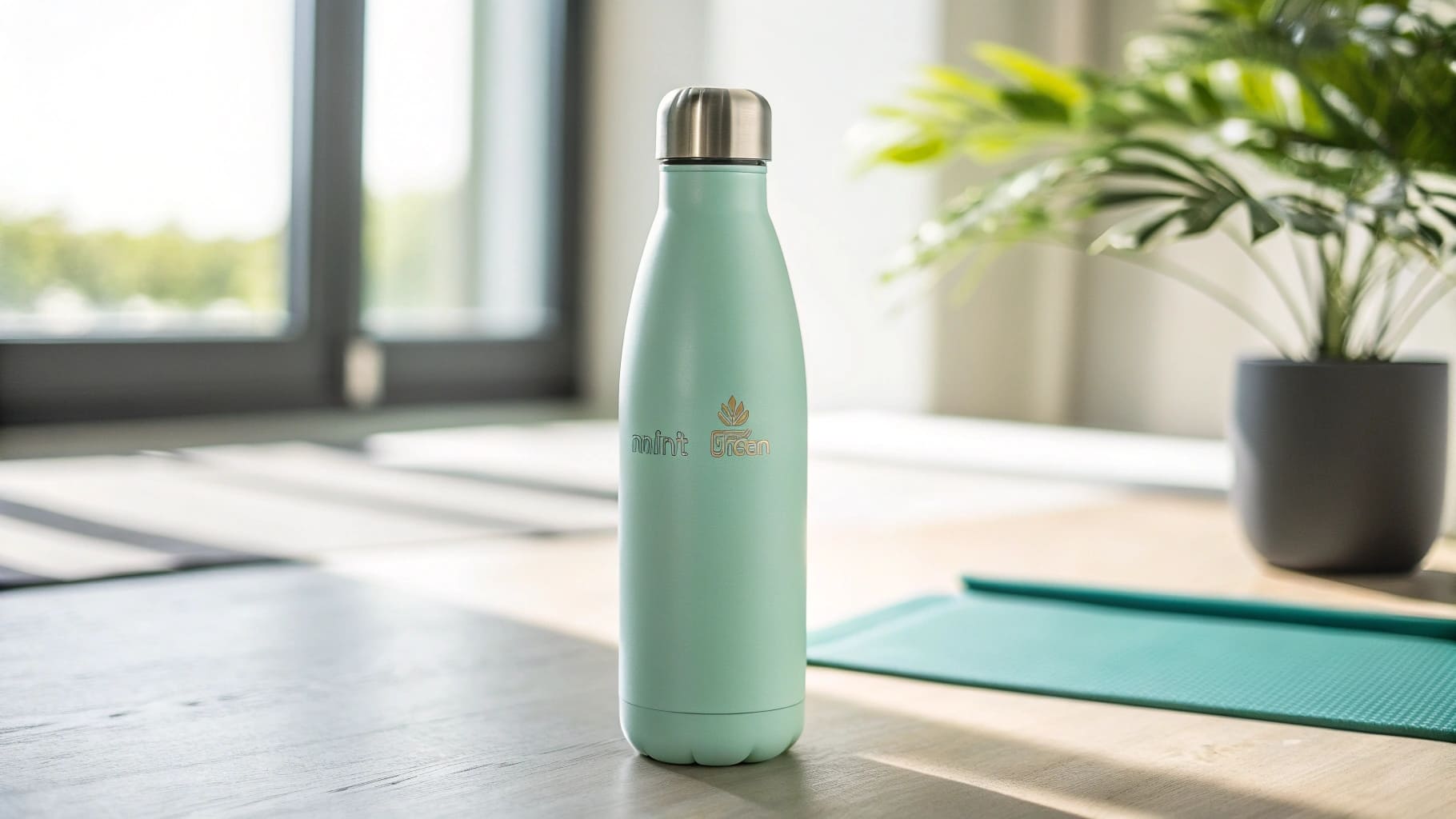Tired of seeing plastic everywhere? This pollution harms our planet. But, there's a simple, effective way you can help fight back and make a real difference.
Reusable water bottles directly reduce plastic pollution. They achieve this by decreasing the need for single-use plastic bottles. Every refill means one less plastic bottle made, shipped, and trashed.

You might wonder how big an impact one person or one company can truly make with reusable bottles. Well, the effect is quite significant, and it starts with understanding the journey of a single-use plastic bottle versus its reusable counterpart. Let me explain more.
How does using reusable water bottles help the environment?
Plastic waste is choking our oceans and land. This creates a terrible future for wildlife and us. Choosing reusables is a powerful step towards a cleaner world.
Using reusable water bottles helps the environment by cutting down on plastic production. This means less resource use, less pollution from factories, and fewer bottles ending up in landfills or nature.

When we talk about helping the environment, the core idea with reusable bottles, especially durable ones like stainless steel bottles from my company, Icobottle, is displacement. Every time someone like your customer in Canada refills a high-quality stainless steel bottle, they are actively not using a single-use plastic bottle. This simple action has a cascading positive effect.
Think about it:
- Reduced Manufacturing Demand: Fewer plastic bottles need to be made. This means less crude oil extracted and processed, less energy consumed in production, and lower greenhouse gas emissions from factories. For a business owner like Mark Shenng, offering a product that supports this reduction aligns with growing consumer demand for sustainability. It's a strong selling point.
- Less Transportation Impact: Single-use plastic bottles are bulky and light, meaning trucks and ships transport a lot of air along with the product. They are shipped globally, then distributed locally, often for just one use. Reusable bottles, once purchased, only require local refilling. This cuts down significantly on transportation-related fuel consumption and emissions.
- Minimized Waste: This is the most obvious benefit. Plastic bottles can take hundreds of years to decompose. Many end up in our oceans, harming marine life, or in landfills, taking up valuable space. A reusable bottle can prevent hundreds, even thousands, of plastic bottles from entering this waste stream over its lifetime. My experience in the stainless steel bottle industry shows that quality products last for years, amplifying this benefit.
For procurement officers in large companies or startup bosses like Mark, offering top-quality reusable bottles with custom branding is not just about selling a product. It’s about providing a tool that empowers end-users to make a tangible, daily contribution. This directly tackles the plastic pollution problem.
How do reusable containers help the environment?
Our throwaway culture creates mountains of waste. This waste harms ecosystems and our health. Reusable containers offer a smart, sustainable alternative to this damaging cycle.
Reusable containers, including bottles, cups, and food storage, reduce the overall demand for disposable packaging. This lessens resource depletion, energy use in manufacturing, and landfill burden.

The positive environmental impact isn't limited to just water bottles; it extends to all reusable containers. When I think about the range of products we at Icobottle offer, like coffee mugs and tumblers, the principle is the same. The shift from a single-use mindset to a reusable one is critical.
Consider these aspects:
- Resource Conservation:
- Materials: Producing single-use plastics consumes significant amounts of petroleum. Manufacturing single-use paper products often involves cutting down forests. Glass, while recyclable, is energy-intensive to produce and transport. Durable reusable containers, especially those made from stainless steel, are designed for longevity, meaning fewer raw materials are needed over time.
- Water: The production of single-use items often requires vast amounts of water. While reusable containers need washing, the overall water footprint can be much lower when considering the entire lifecycle of thousands of single-use items they replace.
- Energy Savings: Manufacturing single-use items on a massive scale is an energy-intensive process. From extracting raw materials to production, packaging, and transportation, the energy toll adds up. A reusable container, once made, sidesteps much of this ongoing energy drain. Mark Shenng appreciates quality, and a well-made stainless steel bottle or mug from a reliable supplier in China like Icobottle means it will last, truly embodying these energy savings for his customers.
- Pollution Reduction:
- Air Pollution: Factories producing single-use items can release pollutants into the air. Reducing production volume directly lessens this impact.
- Water Pollution: Runoff from manufacturing sites and improper waste disposal can contaminate water sources. Fewer disposables mean less risk.
The key here is the lifecycle. A high-quality reusable container might have a higher initial environmental cost to produce than one single-use item. But when you consider it replaces hundreds or thousands of disposables, its overall environmental footprint becomes drastically smaller. This is something I always emphasize to my B2B clients. Offering durable, well-made reusables is an investment in a cleaner planet.
How can we use water bottles to protect the environment?
Plastic pollution feels like an overwhelming problem. Many feel their actions are too small to matter. But collective small actions, starting with reusable bottles, create huge change.
We use water bottles to protect the environment by consistently choosing them over single-use options. This simple habit, multiplied by millions, drastically cuts plastic demand and waste.

Protecting the environment with reusable water bottles isn't just about owning one; it's about integrating its use into daily life and making conscious choices. As a supplier, I see my role at Icobottle not just as providing a product, but as enabling a sustainable habit for the end-users of my B2B clients like Mark Shenng.
Here’s how we can maximize their positive impact:
-
Make it a Habit:
- Accessibility: Keep your reusable bottle visible and easily accessible – on your desk, in your bag, by the door. The easier it is to grab, the more likely you are to use it.
- Refill Stations: Encourage workplaces, schools, and public spaces to install water refill stations. This makes it convenient for people to choose reusables.
- Cleanliness: Regularly clean your bottle to ensure it's always pleasant to use. This is crucial for long-term adoption.
-
Choose Wisely:
- Material Matters: Opt for durable, long-lasting materials like stainless steel. As I often tell my clients, a quality stainless steel bottle can last for many years, significantly reducing the need for replacements and therefore its overall environmental footprint. This addresses Mark's concern for quality.
- Ethical Sourcing: For businesses like Mark's, it's important to partner with suppliers who value ethical production and can provide necessary certifications. This addresses his pain point about certificate fraud and ensures the products are genuinely of good quality and made responsibly. At Icobottle, we prioritize transparency and quality control.
- Customization for Appeal: Offering customized logos and colors, as we do at Icobottle, can make reusable bottles more appealing. This encourages adoption and turns the bottle into a statement piece, promoting the brand and the sustainable message.
-
Spread the Word:
- Lead by Example: Using your reusable bottle visibly can inspire others to do the same.
- Educate: Share information about the benefits of reusable bottles and the problems with single-use plastics.
- Advocate: Support policies that reduce single-use plastic consumption and promote reusable alternatives.
For Mark, whose business model involves rebranding and distributing in Canada, emphasizing these practical aspects and the quality of the bottles can be a strong marketing tool. It shows his customers that he’s not just selling a product, but a solution that is good for them and the planet. Addressing his pain points like logistics and clear communication is also key, ensuring he gets high-quality, certified products on time to meet his market's demand.
Conclusion
Reusable bottles significantly cut plastic waste. They reduce production, resource use, and pollution. Making the switch is a simple, impactful step for a healthier planet.

